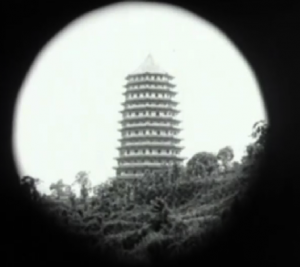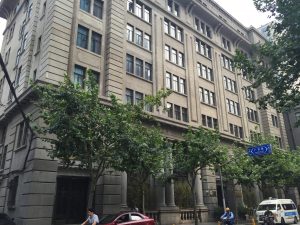 Cover for Tsutsui Yasutaka’s 1967 short story “The Vietnam Travel Agency”
Cover for Tsutsui Yasutaka’s 1967 short story “The Vietnam Travel Agency”
Brian White (PhD Candidate, EALC)
“Asian Aliens: Race and Ethnicity in 1960s Japanese Speculative Fiction”
Friday, January 19th, 3-5pm in CEAS 319
Discussant: Cody Jones (PhD Student, Comparative Literature & Divinity)
Co-sponsored with the Mass Culture Workshop
Please join us Friday (1/19) from 3-5pm, as we host Brian White. He will present a draft of his dissertation chapter, which he summarizes as follows:
In this partial dissertation chapter, I take up a 1968 short story by metafiction writer Tsutsui Yasutaka, entitled “Rose-Tinted Rhapsody.” Through a close reading of this text, I discuss the significance of race and ethnicity in considerations of Cold War-era SF (speculative- or science-fiction). This argument is an intervention in the hegemonic scholarly tradition in Japanese popular cultural studies of reading postwar texts within a bilateral system in which the United States is Japan’s only interlocutor and nuclear trauma and hyper-capitalism its only thematic concerns. Instead, I argue for a reading of these texts that is more sensitive to the complex contemporary geopolitical situation, in which a variety of affinities were negotiated, opened up, and closed off.
The paper is available directly below, or at this link. If you have not received the password, or have questions about accessibility, please feel free to contact Helina Mazza-Hilway (mazzah@uchicago.edu) or Susan Su (susansu@uchicago.edu).




